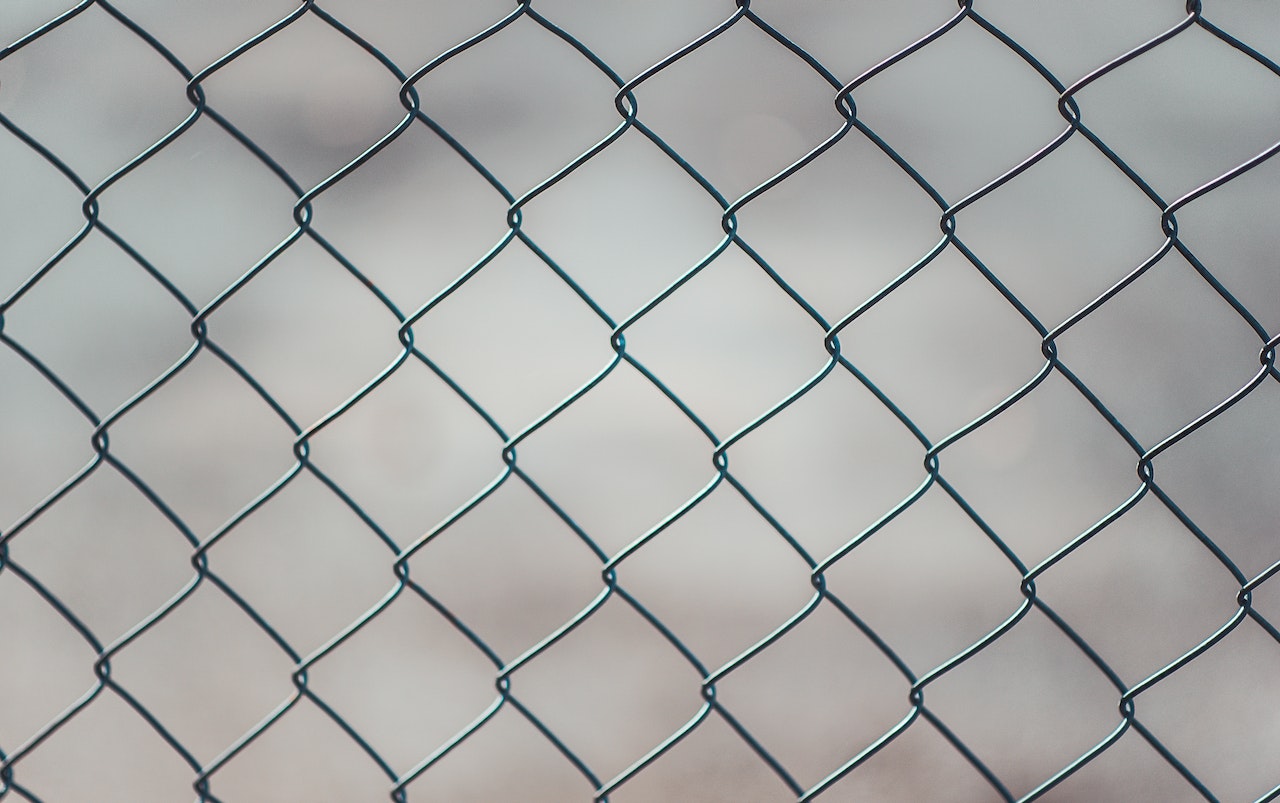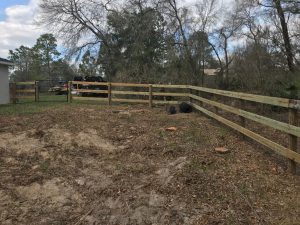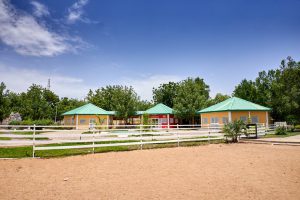How-To Guide: Deciding Which Fence Is Best for You and Your Property
Fences are an integral part of any property, providing added security and privacy, as well as aesthetic value. But deciding which fence is right for your home or business can be a daunting task. In this blog post, we’ll provide you with a comprehensive guide on how to choose the perfect fence for your property’s needs. We will discuss the benefits of installing a fence, factors to consider before choosing a design, types of fences and their characteristics, and tips for finding the right contractor for your project. With this information in hand, you’ll have all the necessary tools to make an informed decision about which fence is best for you and your property.Benefits of Installing a Fence on Your Property.
Installing a fence on your property can provide an added layer of security and privacy to your home or business. A sturdy, well-constructed fence will help keep unwanted visitors out while keeping pets and children in, making it difficult for trespassers to enter without permission. Furthermore, fences also act as a visual barrier between you and your neighbors, providing much needed peace and quiet.
Enhanced Curb Appeal and Property Value.
In addition to providing increased security benefits, installing a fence on your property can also add value to both the aesthetic appeal of the exterior of your home or business as well as its overall market value. Depending on the type of fence chosen, it can increase the curb appeal of any property by adding charm or sophistication to its surroundings. Additionally, upgrading existing fencing with new materials may be viewed favorably by potential buyers if you decide to sell in the future—increasing the overall worth of your property.
Section Factors to Consider Before Choosing a Fence Design.
Property Type, Location, and Purpose
When deciding on the type of fence that is best for your property, it is important to consider the type of property you have, its location, and what purpose the fence will serve.
Residential vs. Commercial Properties
Residential properties tend to focus more on aesthetics and privacy than commercial properties which are typically designed for security or crowd control purposes. For residential purposes, a wood or vinyl fence may be ideal as they offer many design options and can blend in with the natural environment while offering added security and privacy. For commercial applications such as shopping centers or industrial sites, an aluminum fence may be more suitable due to its durability without compromising style.
Urban vs. Rural Locations
Urban locations require a different approach when considering fencing materials due to their harsher environments which can cause faster deterioration of certain types of fences such as wood if not properly maintained over time. In addition to selecting a material that can withstand urban conditions, it is also important to choose one that meets local building codes set by municipalities in order to ensure compliance with safety regulations. On the other hand, rural locations allow for more flexibility when choosing fencing materials due to their less strenuous conditions which do not require frequent maintenance or replacement like those found in cities do.
Security vs Aesthetic Purposes
Depending on the purpose of installing a fence on your property, there are various factors that should be taken into account before making any final decisions – from budget constraints to potential risks posed by intruders or animals depending on where you live in relation to wildlife activity and so forth.. If security is your primary concern then an aluminum or vinyl fence may be better suited whereas if aesthetics are top priority then wooden fences offer plenty of customization options without sacrificing functionality.
Regardless of the purpose, it is important to select a fencing material that meets your needs and budget in order to ensure you get the most out of your investment.
Property Type, Location, and Purpose.
Classic and Versatile.
Wood fences are one of the most classic and versatile fencing materials on the market, offering a range of design possibilities that can suit any property style and budget. Wood fences provide a timeless look that can be customized with paint or stain for an even greater visual impact. They’re also easy to install, making them ideal for those who prefer to DIY their fence installation project.
Requires Regular Maintenance.
However, wood fencing does require more maintenance than other types of materials such as vinyl or aluminum because they are susceptible to damage from weathering and pests like termites and wood rot. To ensure your wood fence lasts as long as possible, it’s important to regularly check the condition of your fence panels, posts, rails, and gate hardware; replace any broken or damaged parts promptly; seal/stain your fence every 2-3 years to protect it from moisture; and inspect for signs of pests regularly.
Section Types of Fences and Their Characteristics.
Chain Link Fences
Low Maintenance and Cost Effective.
Chain link fences are a popular choice for residential, commercial, and industrial properties due to their low maintenance requirements and cost-effectiveness. A galvanized steel chain link fence is made of metal wires tightly woven together in a diamond pattern with posts set into the ground. It offers an affordable fencing solution that requires little upkeep over time. The metal material is also highly resistant to corrosion, making it ideal for outdoor use in wet climates or areas near salt water.
Durable but Lacks Aesthetic Appeal.
Although chain link fences are durable and long-lasting, they lack aesthetic appeal compared to other types of fences such as wood or vinyl options. Many homeowners opt for a more attractive option if they are looking to improve their curb appeal or property value with the addition of a fence on their property. Additionally, chain link fences do not provide much privacy due to their wide spacing between the wire links so may not be suitable for those seeking full security or privacy features on their property boundary lines.
Wood Fences.
Wood fences are one of the most classic and versatile fencing materials available, providing a timeless look that can be tailored to fit any property. Wood fences are available in a wide variety of styles, colors, and sizes to match your home’s unique aesthetic. Additionally, wood is a natural material which makes them an eco-friendly option for many homeowners looking to incorporate sustainable elements into their outdoor living space.
Requires Regular Maintenance.
One downside of using wooden fences is that they require regular maintenance to keep them looking great for years to come. This includes sanding, staining or painting every few years to help protect the wood from moisture damage and rot; as well as regularly inspecting it for any signs of wear or damage due to weather conditions like strong winds or extreme temperatures. However, with proper care and upkeep, wooden fences can last up to 20 years or more!
Vinyl Fences.
Licensing, Insurance, and Certifications.
When it comes to choosing the right contractor for your fence installation project, credentials are crucial. Make sure you inquire about their licensing and insurance information before hiring them. A reliable contractor should have all of their certifications in order and be able to provide proof of liability insurance coverage in case anything goes wrong during or after installation. It’s also important to ask if they carry any additional endorsements or specializations that could make them stand out from other contractors in the area.
Portfolio and References.
In addition to looking at a contractor’s credentials, it’s also important to review their portfolio of past projects and references from previous customers. This will give you an idea of the quality of work that they do as well as how satisfied their customers are with their services. Ask for photos of completed projects so you can get a better feel for the type of work they do and what kind of results you can expect from them once your fence is installed. Also don’t hesitate to ask for references from former clients; this is a great way to get honest feedback on a contractor’s performance and customer service skills before making your decision on who to hire!
Aluminum Fences.
Material Costs and Labor Charges.
When it comes to material costs, aluminum fencing is a good option for those who want to save money in the long run. Aluminum fences are usually cheaper than wood or vinyl, but they may require more labor charges due to their heavier weight and malleability. The cost of installation can range from around $3 to $25 per linear foot depending on the complexity of the fence, so be sure to get an accurate estimate from your contractor before you commit.
Hidden Costs and Long-Term Expenses.
It’s important to consider any potential hidden costs when choosing a fence for your property. If you opt for an aluminum fence, there may be additional expenses such as painting or staining if you choose not to go with a pre-finished product. Additionally, while aluminum fences have low maintenance requirements compared with other materials, they still need regular cleaning and inspection in order to keep them looking their best over time. Furthermore, if you live in areas where there are extreme temperatures or high winds, extra stabilizing measures may be necessary which could add further costs down the line in terms of repairs or replacements.
Section Choosing the Right Fence Contractor for Your Project.
Summary of Choosing the Best Fence for Your Property
Consider All Factors and Options
When selecting a fence for your property, it is important to consider all of the factors that may influence your decision. Think about the purpose you have in mind for installing a fence – are you looking for added security or privacy? Are you seeking an aesthetic improvement to your property value? How much maintenance and upkeep will be required? What type of material best meets these needs?
Once these questions are answered, you can begin researching different types of fences that might work best with your budget, style, and parameters. Wood, vinyl, and aluminum each provide their own advantages and disadvantages depending on what kind of look or function you need from your fence. Make sure to carefully evaluate all options before deciding which one is right for you.
Work Closely With A Reliable Contractor
When choosing a contractor to install your fence, it’s important to make sure they are certified and experienced in both fencing installation as well as landscaping services if needed. Ask around for referrals from family or friends who have had positive experiences working with contractors in the past; this way you know exactly who is coming onto your property when installation begins. Additionally, research each contractor’s qualifications such as licenses, insurance coverage, certifications from professional organizations like the American Fence Association (AFA), portfolio samples of their previous projects, customer testimonials/reviews, etc., so that you feel confident that they are up-to-date on industry standards and regulations when working onsite at your property. It’s also helpful to get multiple estimates before making a final decision so that cost considerations fit within your budget without sacrificing quality workmanship or materials used during installation.
In conclusion, choosing the right fence design for your property requires careful consideration of several factors including purpose/function desired; residential vs commercial properties; urban vs rural locations; type of material used; safety requirements; long-term maintenance costs; aesthetic appeal; local zoning laws/codes; climate conditions where applicable; plus other important details discussed throughout this guide. Taking time upfront to understand all aspects related to fencing selection can save time and money down the road while ensuring lasting satisfaction with both product choice and contractor services provided along the way!
Credentials and Experience.
Research and Interview Potential Contractors.
When choosing a contractor for your fence project, it’s important to do some research and interview potential candidates. Ask for references and look at their portfolio of past projects. Make sure the contractor is licensed, insured, and certified in your area to ensure you’re getting qualified help.
Get an On-Site Estimate with a Detailed Quote.
Once you’ve narrowed down your list of prospective contractors, be sure to get an on-site estimate with a detailed quote before finalizing your decision. The quote should include all material costs as well as labor charges, so that you have a full understanding of what you’ll be paying for in the end. Also consider any hidden costs or long-term expenses that may not be included in the initial estimate such as maintenance fees or replacement parts over time.
Cost Considerations and Budgeting.
Setting a Budget and Researching Prices.
It is important to set a realistic budget for your fence project before you start researching materials and contractors. Knowing your budget will help you narrow down your options, so that you can make an informed decision on the type of fence that best suits your needs and resources.
When researching prices, start by looking at the cost of materials and labor in your area. Make sure to inquire about any hidden costs or additional fees associated with the project, such as permits or special equipment rentals. Additionally, consider longer-term costs such as maintenance expenses, which can vary depending on the type of material used in the construction of the fence.
Choosing Between DIY Installation Vs Hiring a Contractor.
Once you have determined what kind of fence is best for you and have researched prices within your budget, it’s time to decide whether to install it yourself or hire a professional contractor to do it for you. DIY installation may be less expensive initially but can require more time and effort than hiring a contractor who is experienced in fencing projects in particular areas (e.g., residential vs commercial). Professional installers are also likely to provide warranties on their services as well as advice about ongoing maintenance needs for different types of fences over time.
In conclusion, deciding which fence is best for your property requires careful consideration based on factors such as security requirements, aesthetic preferences, location type (residential vs commercial), budget constraints, etc., all while taking into account available materials choices and associated costs related to installation & upkeep. Ultimately, working closely with an experienced contractor who specializes in fencing projects will ensure that both cost considerations & aesthetic goals are met without compromising quality standards or safety measures during installation & use throughout its lifespan.
Section Conclusion.
Maintenance and Care
Regular Cleaning
Fences are subject to a variety of wear and tear, including dirt, mud, leaves, twigs, pollen, and animal droppings. For this reason, it is important to keep your fence clean in order to maintain its beauty and longevity. To achieve the best results, use a pressure washer with soap or detergent on wood fences; for vinyl or aluminum fences use water only. Be sure to follow the manufacturer’s instructions carefully when using a pressure washer as too much pressure can cause damage. Additionally, it is essential to check your fence regularly for signs of rot or insect infestation as both can have an adverse effect on its structure if left unaddressed.
Repairs and Replacement Parts
Over time, weather conditions may cause some parts of your fence to become loose or break down completely requiring repairs or replacement parts. If you’re dealing with minor issues such as broken boards or damaged posts you may be able to fix them yourself by following simple DIY instructions found online. However more serious problems such as termite infestations should be handled by a professional contractor who will have access to specialized materials and tools necessary for repair work that would otherwise be unavailable in stores or home improvement centers.
Summary of Choosing the Best Fence for Your Property.
Research Your Options and Prioritize Requirements.
When selecting a fence, it is important to research your options and prioritize what requirements the fence needs to meet. Consider the cost of materials and labor for installation, as well as any additional or hidden costs that may arise. Additionally, consider how much security and privacy you need from a fence, as well as its overall aesthetic value.
Consider Maintenance Needs & Durability Factors
Fence types can vary greatly in terms of maintenance needs and durability factors; wood fences require regular maintenance while vinyl fences are low-maintenance but more prone to damage over time. Aluminum is durable but not ideal for privacy purposes; be sure to weigh all these factors when deciding on a type of fence that’s best for you.
Work With an Experienced Contractor
Finally, be sure to work with an experienced contractor who has the credentials and experience necessary for such projects. Ask for references from previous clients so you can get an idea of their quality of work before committing to them for your project. Doing your due diligence during this step will ensure that you get a high-quality result at the end of the process!
Conclusion
Choosing the best fence for your property is an important decision that requires careful consideration of all factors, including purpose, location, type, and cost. When selecting a fence design and contractor, you should always prioritize quality over cost to ensure that your investment will last for years to come. Working closely with a qualified professional can help you make the best choice for you and your property. Ultimately, investing in a quality fence can add security, privacy, increased curb appeal and value to your home or business.
Take the time to carefully assess all of your options before making any decisions about fencing on your property – it could be one of the most rewarding investments you make!




